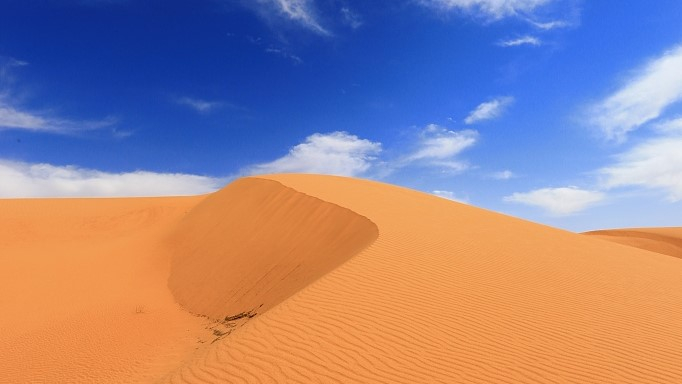
How do you make water in the desert? On World Water Day it's a question that might carry ramifications beyond the United Arab Emitrates (UAE) ecolodge doing just that.
The site is about an hour from Dubai, cloaked in the rolling sand dunes of the UAE's arid desert landscape. U.S. based firm Zero Mass Water have helped install unique hydroplanes that can extract water from air. It's MENA vice president, Vahid Fotuhi, says the panels use "the power of the sun to pull in the humidity in the air and extract the moisture." That is then turned into water which needs to be mineralized before it's suitable for human consumption.
It's a novel, if small-scale, operation. Each unit can produce five liters of drinking water a day, with 100 panels on site. But according to Vahid a major selling point is "they're entirely off grid." That gives them the potential to provide sustainable drinkable water to isolated communities.
It's one of a number of water initiatives being trialed in the UAE. The nation is home to swathes of desert, with little underground water. The UAE estimates its overall demand for water to be 4.2 billion cubic meters per year, much of which comes from desalinated seawater. When it comes to drinking water, that makes the country per capita a major user of plastic bottles. But there's efforts underway to change that. No More Bottles has been working with a growing number of Dubai hotels and government entities to help them go plastic free. Sandy Muirhead is a director at the filtration company. He says "a normal resident of the UAE consumes over 450 plastic bottles a year," which when combined with tourists is a "frightening stat." But Sandy also notes more in the Gulf country are now turning to environmentally conscious alternatives, saying "in the last 18 months there's been a huge change in perception in the region."
World Water Day focuses minds on both global access to water and how people source it. In the parched desert lands of the UAE, there's a push for innovative solutions. But as the world faces a future of growing water scarcity, it could just be a drop in the ocean.